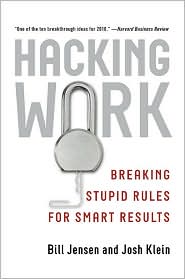Today was the first proper day of linux.conf.au, which is being held this year in Brisbane. This morning we were treated to a welcoming speech by conference organiser Dr Shaun Nykvist, and a presentation on the Google Summer of Code happening this year. In the welcoming speech, Shaun detailed how the organisers and volunteers had to work against water and time to get the conference ready despite Brisbane’s horrific flooding:
“I’ve got some lovely photos of our old venue with sandbags against the flood zones. It’s a shame the sandbags were about three metres lower than the water.”
After morning tea (some very lovely cakes and biscuits were provided) it was time for the Miniconfs. During the morning session I attended the Open Programming Miniconf, organised by my friend Chris Neugebauer. The first talk was about perl5i, which is a package of library modules for perl that makes it an almost usable language (almost, I don’t think that there is anything can truly save it). It was very interesting stuff, seeing how the syntax and semantics of a language can change. The speaker (Michael Schwern) was brilliant as well, which is always nice.
The next talk was about the F# programming language, designed by Microsoft. Brian McKenna’s speaking wasn’t great (but it was his first big talk, so that can be forgiven). Although I dislike the idea of languages that run on top of runtimes (such as JVM and .NET), F# looks like a good invention. Indeed, it’s basically where Microsoft develops and tests features that might be useful to put into C#.
After that was a talk by Brianna Laugher on generating English-language text using software tools, from a set of data. She was using it as part of her job at the Bureau of Meteorology to automate the generation of weather reports from their models. The idea was hugely interesting, and something that I want to implement. However, I didn’t really understand how the generation itself worked… quite a few arcane symbols seemed to be in use. I think I got the general gist though.
The final talk before lunch was about Go, the programming language developed at Google. I originally thought Go was a programming language for children, but I’ve now been set straight. It looks like something to test out… which is being added to my very long list of stuff to try now.
After lunch I went to see two talks from the Haecksen Miniconf. The first was about how open source software can help save the world, mostly by developing open source software to fix natural disaster problems, and doing it really really quickly and cheaply. The second was about setting up an overly-complicated home network, an area with which I am well acquainted.
Then it was back to the Open Programming Miniconf, where I learned about the demise of Java (basically, the Java community is dead, but Java itself will probably survive, and the JVM will definitely survive). The final talk before afternoon tea was about how to create compilers for the JVM using a parser written in Scala. Unfortunately due to the use of Scala I lost most of the detail of the talk, it went straight over my head. Which is a pity, because I was really looking forward to that talk. Ah well, guess you can’t win them all. After all this though, I was really interested in designing programming languages and compilers. I might have to give it a go.
During the final session of the day I was treated to a brilliant talk by Adam Harvey, who is a PHP developer (i.e. actually develops the PHP interpreter) telling us about the state of the PHP language. It seems Debian Stable is hugely out of date… but this is nothing new. He’s a great speaker, and I look forward to hearing his talk tomorrow, even though I don’t know what it’s about.
Last up was Jethro Carr, a hacker from NZ I know from attempting to complete his 30 Days of Geek challenge. He talked about the software revision control management tool thing he wrote, and talked about the benefits of using such software. Personally I quite enjoy using Redmine, but it’s requirement for Ruby means that I might be looking for an alternative when I get around to setting up my own installation. Currently I use the Quokforge service, run by one of my friends on OSDev.org.
So that was day 1. Or rather, the official day 1. Since then I’ve bought a printer and been to an Irish pub. More LCA news coming tomorrow, I hope.


 I recently
I recently